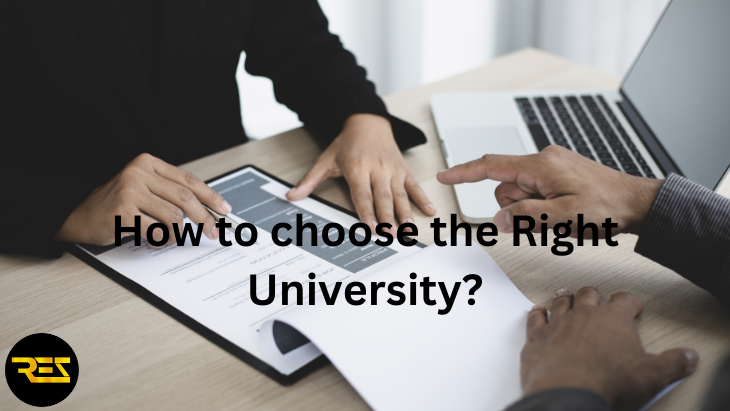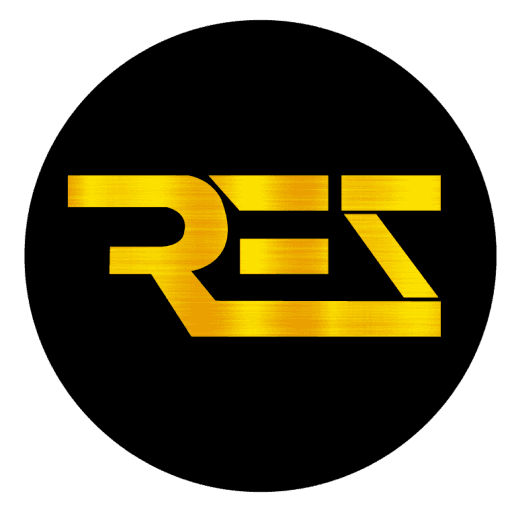
How to Choose the Right University for Your Career Goals
Choosing the right university requires aligning your career goals with program strengths, industry connections, location advantages, and post-graduation opportunities. The best approach involves evaluating academic reputation, employability rates, cost-benefit analysis, and cultural fit—areas where experienced overseas education consultants in Bangalore can provide crucial guidance.
Why is University Selection More Critical Than Ever in 2025?
The university you choose doesn’t just determine your education quality — it shapes your entire career trajectory. In 2025, university selection has become more strategic than ever due to rapidly evolving job markets, changing immigration policies, and increased competition for top positions globally.
As seasoned overseas education consultants in Bangalore, Reknown Edu Services has guided thousands students since 2012, and we’ve observed that students who make strategic university choices are 4x more likely to achieve their career goals within 5 years of graduation.
Key factors making university selection crucial:
- Industry 4.0 transformation: Universities with strong tech partnerships offer better career prospects
- Immigration policy changes: Some universities provide better pathways to permanent residency
- Economic uncertainties: ROI-focused selection has become paramount
- Remote work evolution: Location flexibility has changed career planning strategies
What Should Be Your Primary Considerations When Choosing a University?
Your career goals should drive every university selection decision. Here’s how to approach this systematically:
Career-First Evaluation Framework
Step 1: Define Your 10-Year Vision Before researching universities, clearly articulate where you want to be professionally in 10 years. This clarity will guide every subsequent decision.
Step 2: Industry Analysis Research which industries are growing in your target countries. For example, if you’re interested in AI and Data Science, our comprehensive guide on MS in AI/Data Science in the USA shows that graduates earn $95,000-$150,000 annually with strong growth prospects.
Step 3: Location Strategy Consider how university location impacts career opportunities:
- Tech hubs: Silicon Valley, Toronto, Bangalore for technology careers
- Financial centers: New York, London, Frankfurt for finance roles
- Industrial regions: Germany’s automotive belt for engineering careers
At Reknown Edu Services, our personalized approach has helped students from Karnataka secure positions at Google, Microsoft, and other global leaders by strategically matching their goals with university strengths.
How Do You Evaluate University Reputation vs. Program Quality?
University reputation and program quality don’t always align — understanding this distinction is crucial for career success.
The Reputation-Quality Matrix
High Reputation + High Program Quality: Ideal choice (CalTech, MIT for AI)
High Reputation + Moderate Program Quality: Good for network building
Moderate Reputation + High Program Quality: Excellent ROI, often undervalued gems
Low Reputation + Low Program Quality: Avoid for career-focused goals
Program Quality Evaluation Metrics
Faculty Expertise: Research faculty backgrounds, industry experience, and publication records
Industry Partnerships: Universities with strong corporate ties offer better internship and job opportunities
Curriculum Relevance: Ensure courses align with current industry demands
Alumni Network: Strong alumni networks in your target industry provide invaluable career support
Example: For marketing careers, our MS in Marketing in the USA guide shows that Columbia Business School graduates average $120,000 starting salaries due to strong industry connections in NYC.
Which Countries Offer the Best Career Opportunities Post-Graduation?
Career opportunities vary significantly by country, and your choice should align with long-term goals:
Tier 1: Highest Career Potential
United States
- Strengths: Highest salaries globally, innovation epicenter, diverse opportunities
- Best for: Tech, finance, healthcare, research roles
- Average starting salaries: $70,000-$120,000 in STEM fields
- Immigration: Challenging H1-B system but highest long-term earning potential
Our Study in USA consulting services have helped 1000+ students navigate the complex US system with 95% success rate.
Canada
- Strengths: Clear immigration pathways, growing tech sector, high quality of life
- Best for: AI/ML, clean technology, healthcare
- Average starting salaries: CAD 55,000-75,000
- Immigration: Express Entry system favors graduates
Germany
- Strengths: Engineering excellence, affordable education, strong manufacturing sector
- Best for: Automotive, mechanical engineering, renewable energy
- Average starting salaries: €45,000-65,000
- Immigration: 18-month job search visa, relatively straightforward process
For engineering students from Karnataka, our Germany education consulting has achieved remarkable success in automotive engineering placements.
Tier 2: Strong Opportunities with Specific Advantages
Australia
- Strengths: Points-based immigration, work-life balance, natural resources sector
- Best for: Mining engineering, business, healthcare
- Post-study work: Up to 4 years depending on qualification
United Kingdom
- Strengths: 1-year master’s programs, financial sector access, research excellence
- Best for: Finance, luxury brand management, research
- Recent changes: 2-year post-study work visa restoration
Ireland
- Strengths: EU access, growing tech hub, English-speaking
- Best for: Business analytics, pharmaceuticals, tech
- Corporate presence: Google, Facebook, Apple European headquarters
Our specialized guides on MBA in Ireland and MS in Business Analytics in Ireland provide detailed career pathway analysis.
How Important is University Location for Your Career Goals?
Location can make or break your career prospects — it’s often more important than university rankings.
Industry Cluster Strategy
Technology Careers:
- Silicon Valley: Stanford, UC Berkeley for proximity to tech giants
- Boston: MIT, Harvard for biotech and AI opportunities
- Toronto: University of Toronto for Canada’s tech boom
- Bangalore: For those planning to return to India’s Silicon Valley
Finance Careers:
- New York: Columbia, NYU for Wall Street access
- London: LSE, Imperial for European finance markets
- Frankfurt: For European banking and fintech
Engineering Careers:
- Germany’s Industrial Belt: Munich, Stuttgart for automotive
- California: For aerospace and clean energy
- Texas: For oil & gas and renewable energy
Location-Specific Advantages
Cost of Living Considerations: Cities like Austin, Calgary, or Munich offer better cost-quality ratios compared to New York or London while maintaining excellent career prospects.
Cultural Integration: Consider your comfort level with different cultures. Our experience shows Karnataka students adapt well to multicultural cities like Toronto, Melbourne, or Berlin.
Alumni Networks: Some universities have stronger regional alumni presence, providing better networking opportunities in specific locations.
What Are the Most Common Mistakes Students Make in University Selection?
Avoiding these mistakes can save years of career setbacks:
Critical Selection Mistakes
Mistake #1: Chasing Rankings Blindly
✗ Wrong approach: Selecting universities based only on overall rankings
✓ Right approach: Focus on program-specific rankings and industry reputation
Mistake #2: Ignoring Location Impact
✗ Wrong approach: Choosing universities in cities with limited career opportunities
✓ Right approach: Align location with industry clusters and career goals
Mistake #3: Underestimating Cultural Fit
✗ Wrong approach: Ignoring cultural adaptation challenges
✓ Right approach: Consider your adaptability and support systems
Mistake #4: Overlooking Immigration Policies
✗ Wrong approach: Not researching post-study work opportunities
✓ Right approach: Understand visa policies and pathways to permanent residency
Mistake #5: Insufficient Financial Planning
✗ Wrong approach: Focusing only on tuition costs
✓ Right approach: Calculate total cost of living and opportunity costs
Success Pattern Analysis
Based on our 13 years of experience, students who achieve their career goals typically:
- Start planning 18-24 months in advance
- Apply to 8-12 carefully selected universities
- Consider 2-3 countries for diversification
- Factor in post-graduation immigration policies
- Seek professional guidance for complex decisions
How Do Test Scores Impact University Selection Strategy?
Your test scores should influence both target selection and application strategy:
Score-Based University Targeting
High Scores (IELTS 7.5+, GRE 320+): Target top-tier universities with confidence. Consider reach schools that might have seemed impossible initially.
Moderate Scores (IELTS 6.5-7.0, GRE 310-320): Focus on universities where you’re in the 50th-75th percentile of admitted students. Strong application essays can compensate.
Developing Scores (Below typical requirements): Consider score improvement before applications or target universities with holistic admission processes.
Test Preparation Strategy
For IELTS Preparation: Our IELTS coaching in Bangalore has achieved 95% first-attempt success rates with innovative ChatGPT-powered learning and personalized feedback.
For GRE Preparation: GRE coaching programs focus on 310+ scores with 2000+ students successfully trained through our systematic approach.
For TOEFL Preparation: Our TOEFL coaching guarantees 100+ scores with 1500+ students achieving their target scores.
Timeline Planning: Allow 3-6 months for test preparation, with possibility of retakes if needed. Start early to avoid deadline pressure.
What Resources Should You Use for University Research?
Comprehensive research requires multiple authoritative sources:
Official University Resources
University Websites: Program curricula, faculty profiles, admission requirements
Virtual Information Sessions: Direct interaction with admissions officers
Student Portals: Current student perspectives and experiences
Career Services Data: Employment statistics and salary information
Third-Party Evaluation Platforms
QS World Rankings: Global university and program rankings
Times Higher Education: Research-focused university assessments
LinkedIn Alumni Tool: Career outcomes of graduates
Glassdoor: Employee reviews of target companies
Professional Guidance Resources
Education Consultants: Expert insights and personalized guidance
Alumni Networks: First-hand experiences and career advice
Industry Professionals: Current market insights and trends
Online Communities: Student forums and discussion groups
As experienced overseas education consultants in Bangalore, we provide access to proprietary databases, alumni networks, and industry insights that aren’t publicly available.
How Do You Create a Balanced University List?
A strategic university list balances reach, target, and safety schools across multiple dimensions:
The Strategic Mix Formula
Reach Universities (25-30%): Universities where your profile is below average admitted students but still possible with exceptional application materials.
Target Universities (40-50%): Universities where your profile matches typical admitted students. These should form your list’s backbone.
Safety Universities (20-25%): Universities where your profile exceeds typical requirements and admission is highly likely.
Multi-Dimensional Balance
Geographic Diversification: Apply across different regions/countries to maximize opportunities and hedge against policy changes.
Program Type Variety: Include research-focused, coursework-focused, and professional programs based on career goals.
Timeline Flexibility: Apply to programs with different start dates (Fall, Spring, Summer) for maximum flexibility.
Financial Range: Include options across different cost levels to ensure affordability regardless of scholarship outcomes.
When Should You Start the University Selection Process?
Timeline planning is crucial for optimal outcomes:
18-24 Months Before Target Start Date
Career Goal Clarification: Define long-term career objectives and research industry trends
Initial Country Research: Understand immigration policies and job markets
Test Preparation Planning: Schedule IELTS, GRE, TOEFL preparation
12-18 Months Before
University Research Phase: Create comprehensive university lists with detailed program analysis
Application Strategy Development: Plan application timelines and requirements
Financial Planning: Explore scholarship opportunities and funding options
6-12 Months Before
Application Execution: Submit applications, complete essays, secure recommendations
Test Score Optimization: Complete required tests and retakes if necessary
Interview Preparation: Prepare for university and scholarship interviews
3-6 Months Before
Decision Making: Evaluate offers, compare financial aid packages, make final selections
Visa Processing: Begin student visa applications
Pre-departure Planning: Arrange accommodation, flights, insurance
Our Project Manager service guides students through this entire timeline with personalized milestones and deadline management.
What Questions Should You Ask University Representatives?
Strategic questioning reveals crucial information for decision-making:
Academic Program Questions
- What percentage of graduates secure employment in their field within 6 months?
- Which companies recruit directly from this program?
- What research opportunities are available for master’s students?
- How does the curriculum prepare students for industry changes?
Career Services Questions
- What career support is provided to international students?
- Can you share employment statistics by nationality/region?
- What alumni networking opportunities exist in my target location?
- How do you assist with visa sponsorship and work authorization?
Financial Questions
- What merit-based scholarships are available for my profile?
- Are there research or teaching assistantship opportunities?
- What are the realistic living costs in this location?
- Do you provide emergency financial support for international students?
Student Life Questions
- What cultural adaptation support do you provide?
- How diverse is the student body in this program?
- What housing options are available for international students?
- What student organizations exist for my interests/background?
How Can Professional Guidance Accelerate Your University Selection?
Professional education consultants provide invaluable expertise and save crucial time:
Advantages of Professional Guidance
Insider Knowledge: Access to admission trends, unpublished requirements, and officer preferences
Network Access: Connections with university representatives, alumni, and industry professionals
Strategic Planning: Comprehensive timeline management and application strategy
Error Prevention: Avoiding costly mistakes in applications and decisions
What to Expect from Quality Consultants
Comprehensive Profile Analysis: Detailed assessment of strengths, weaknesses, and opportunities
Personalized University Lists: Curated recommendations based on career goals and profile
Application Support: Guidance on essays, interviews, and documentation
Ongoing Support: Assistance from initial planning through visa acquisition
Reknown Edu Services Advantage
As Bangalore’s premier overseas education consultants since 2012, we offer:
Proven Track Record: 3,000+ students successfully placed with 95% visa success rate
Comprehensive Services: From test preparation to post-arrival support
Local Expertise: Deep understanding of Karnataka students’ needs and challenges
Flexible Models: DIY, DWY, DFY, and Project Manager services to suit every need and budget
Service Models Available:
- DIY (₹15,000-₹25,000): Self-managed with expert guidance
- DWY (₹35,000-₹55,000): Collaborative approach with shared responsibilities
- DFY (₹75,000-₹1,25,000): Complete end-to-end management
- Project Manager (₹1,50,000-₹2,50,000): Long-term comprehensive mentorship
What Role Does Networking Play in University Selection?
Strategic networking provides insights unavailable through traditional research:
Alumni Networking Strategy
LinkedIn Alumni Search: Use LinkedIn’s alumni tool to connect with graduates from target programs
University Alumni Events: Attend alumni meetups in Bangalore to gather firsthand insights
Industry Conferences: Network with professionals who hire from target universities
Professional Associations: Join relevant professional bodies for industry connections
Information Gathering Through Networking
Career Outcomes: Real salary data and career progression examples
Program Quality: Honest assessments of academic rigor and relevance
Cultural Insights: Adaptation challenges and success strategies
Industry Connections: Understanding which universities have stronger industry ties
Building Long-term Networks
Maintain Relationships: Keep in touch with contacts for ongoing career guidance
Give Back: Share your experiences with future students
Professional Development: Continue networking throughout your career
Mentorship: Seek mentors and become mentors to others
What Role Do Internships and Industry Connections Play?
Universities with strong industry partnerships provide exponential career advantages through internships, networking, and direct recruitment opportunities.
Evaluating Industry Connections
Corporate Partnership Programs: Look for universities with formal partnerships with target companies. For example, Georgia Tech’s strong ties with automotive companies benefit mechanical engineering students.
Career Services Quality: Research university career services’ placement rates, average salary data, and employer relationships. Top universities maintain detailed employment statistics.
Internship Placement Rates: Universities with 80%+ internship placement rates typically offer better career prospects. This is particularly important for competitive fields like consulting or investment banking.
Industry-Specific Connection Examples
For AI/Data Science Careers: Universities like Carnegie Mellon, Stanford, and University of Toronto have direct pipelines to Google, Microsoft, and OpenAI through research collaborations.
For Marketing Careers: Programs at Northwestern, Wharton, and INSEAD maintain strong connections with P&G, Unilever, and McKinsey for brand management roles.
For Engineering Careers: German universities like TU Munich and RWTH Aachen have direct connections with BMW, Mercedes, and Siemens for automotive engineering roles.
How Do You Assess Return on Investment (ROI) for Different Universities?
ROI analysis should consider both financial and career advancement metrics:
Financial ROI Calculation
Investment Components:
- Tuition fees
- Living expenses
- Opportunity cost (lost salary during studies)
- Test preparation and application costs
Return Components:
- Starting salary increase
- Career progression potential
- Long-term earning capacity
- Immigration/citizenship value
ROI by Destination (Based on Our Student Outcomes)
Highest ROI: Germany
- Investment: €10,000-32,000 annually
- Starting salary: €45,000-65,000
- Payback period: 2-3 years
- 10-year earning potential: €800,000+
Strong ROI: Canada
- Investment: CAD 32,000-68,000 annually
- Starting salary: CAD 55,000-75,000
- Payback period: 3-4 years
- Immigration value: Significant
Premium ROI: USA (STEM)
- Investment: $40,000-95,000 annually
- Starting salary: $70,000-120,000
- Payback period: 2-4 years
- Highest absolute earning potential
Our financial planning services include detailed ROI analysis for each student’s unique situation.
Testimonials
Conclusion: Your Strategic Approach to University Selection
Choosing the right university requires a systematic, career-focused approach that balances multiple factors including academic quality, location advantages, career opportunities, and financial considerations. The universities you select today will shape your professional trajectory for decades to come.
Your Action Plan
Phase 1: Self-Assessment (1-2 months)
- Clarify your 10-year career vision
- Assess your academic profile and test scores
- Determine your financial capacity and constraints
- Research industry trends in your field of interest
Phase 2: Research and Shortlisting (2-3 months)
- Create comprehensive university lists across multiple countries
- Evaluate programs based on career outcomes and industry connections
- Assess ROI for different options
- Connect with alumni and industry professionals
Phase 3: Application Strategy (3-6 months)
- Develop compelling application materials
- Apply strategic mix of reach, target, and safety schools
- Submit scholarship applications simultaneously
- Prepare for interviews and additional requirements
Phase 4: Decision Making (1-2 months)
- Compare offers holistically, not just financially
- Consider long-term career implications
- Evaluate visa processes and immigration pathways
- Make informed final decisions
Why Professional Guidance Makes the Difference
University selection involves thousands of variables, changing policies, and nuanced decisions that can impact your entire career. As experienced overseas education consultants in Bangalore, Reknown Edu Services has guided 3,000+ students through this complex process since 2012.
Our comprehensive support includes:
- Personalized university selection based on your unique profile and goals
- Industry insights from our extensive alumni network across global companies
- Test preparation excellence with 95% success rates in IELTS, TOEFL, and GRE
- End-to-end support from initial counseling to post-arrival assistance
- Financial planning including scholarship guidance and ROI analysis
Whether you’re interested in AI and Data Science programs, marketing careers, engineering specializations, or business programs, our program-specific expertise ensures you make informed decisions.

Ready to begin your strategic university selection journey?
Contact Reknown Edu Services today—Bangalore’s most trusted overseas education consultants. With our proven track record, comprehensive services, and personalized approach, we’ll help you choose universities that align perfectly with your career aspirations and set you up for long-term success.
Your dream career starts with the right university choice. Let’s make that choice together.
📍 Visit Us: BHIVE Workspace, Indiranagar, Bangalore
📞 Call/WhatsApp: +91-9035366635
✉️ Email: info@reknownedu.com
Take the first step toward your global career success today.
